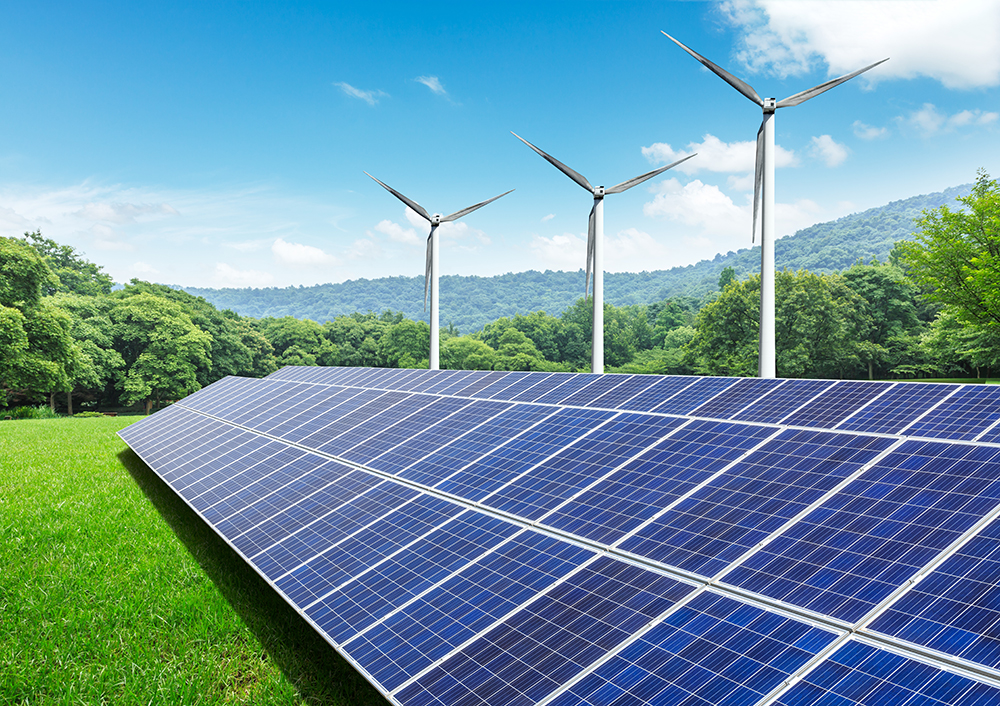The global shift towards clean energy has been a focal point for investors aiming to contribute to a sustainable future while capitalizing on emerging market opportunities. However, the escalating trade war between major economies, notably the United States and China, has introduced a complex set of challenges for clean energy investors. This article delves into the impact of the trade war on the clean energy sector and explores strategies that investors are employing to navigate this turbulent landscape.
Understanding the Trade War's Impact on Clean Energy
The trade tensions between the U.S. and China have led to the imposition of tariffs and trade barriers that significantly affect the clean energy industry. Analis UBS Wealth, Amantia Muhedini, highlighted that the decoupling of trade relations between these two economic giants exacerbates challenges for U.S. companies importing essential components for decarbonization technologies. Consequently, these tariffs tend to increase the cost of clean technologies, which are already more expensive in the U.S. compared to other countries.
Strategies Employed by Clean Energy Investors
In response to these challenges, clean energy investors are adopting several strategies to mitigate risks and capitalize on new opportunities:
- Diversification of Supply Chains: To reduce reliance on imports subject to tariffs, companies are exploring alternative suppliers from countries not directly involved in the trade conflict. This diversification helps in maintaining a steady flow of necessary components without the added costs of tariffs.
- Investment in Domestic Manufacturing: Some investors are channeling funds into domestic production facilities for clean energy components. By localizing manufacturing, companies can circumvent import tariffs and potentially benefit from government incentives aimed at boosting local industries.
- Exploring Emerging Markets: The trade war has prompted investors to look beyond traditional markets, identifying emerging economies with favorable policies and growing demand for clean energy solutions. These markets offer new avenues for growth and reduced exposure to trade-related disruptions.
Case Studies: Resilience in Action
Several companies have exemplified resilience amid the trade war by implementing innovative strategies:
- Company A: By establishing a manufacturing plant in a tariff-exempt country, Company A managed to maintain its supply chain integrity and cost structure, ensuring continued competitiveness in the market.
- Company B: Investing in research and development, Company B developed alternative materials that are not subject to tariffs, thereby reducing production costs and reliance on imported components.
The Role of Policy and International Cooperation
Government policies play a crucial role in shaping the clean energy investment landscape. Advocacy for favorable policies, such as tax credits and subsidies for clean energy projects, can alleviate some of the financial burdens imposed by the trade war. Additionally, international cooperation and trade agreements that prioritize environmental sustainability can create a more stable and predictable environment for investors.
Looking Ahead: Opportunities Amidst Challenges
Despite the hurdles posed by the trade war, the clean energy sector continues to present significant opportunities:
- Technological Innovation: The push for cost reduction and efficiency has accelerated innovation in clean energy technologies, leading to breakthroughs that enhance competitiveness.
- Increased Public Awareness: Growing public concern over climate change has led to increased demand for clean energy solutions, providing a robust market for investors.
- Collaborative Ventures: Partnerships between companies across different countries and sectors are fostering knowledge exchange and resource sharing, strengthening the global clean energy ecosystem.
Conclusion
The trade war has undeniably introduced complexities into the clean energy investment landscape. However, by adopting adaptive strategies, investing in innovation, and leveraging supportive policies, clean energy investors can navigate these challenges effectively. The resilience demonstrated by the sector underscores its critical role in the global transition towards sustainable energy, highlighting that even amid geopolitical tensions, the momentum towards a cleaner future remains steadfast.
Read More






 Wednesday, 04-03-26
Wednesday, 04-03-26







